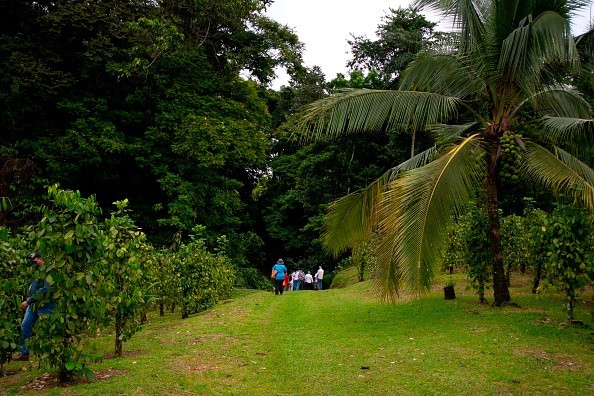According to a new report by researchers from Rutgers University-New Brunswick and the University of Maine, increasing the adoption of agricultural practices such as cover cropping, grazing management, and agroforestry may help to prevent climate change.

How Plants and Soils in New Jersey Aid in CO2 Absorption
The study covers how plants and soils in New Jersey may help absorb and store CO2 from greenhouse gas emissions, according to Phys.org.
Farmlands, woods, and wetlands in New Jersey can together offset roughly 8% of the state's greenhouse gas emissions.
According to the 80 X 50 Report of New Jersey's Global WarSing Response Act, these lands, as well as initiatives to expand their carbon storage capacity, will be critical if the state is to fulfill its 2050 emissions reduction objective.
According to Marjorie Kaplan, co-director of Rutgers' New Jersey Climate Change Resource Center, the study aimed to better understand the current state of knowledge about carbon storage in agricultural soils and to identify the types of programs, barriers, and opportunities that could be used to further carbon sequestration on agricultural land in New Jersey.
Considerations to Boost Soil Carbon Sequestration
Certain agricultural techniques have been shown to cause long-term damage to soil health and sustainability by removing carbon from the soil.
Modifying these habits, on the other hand, may help fill in some of the gaps while simultaneously acting as a carbon sink. Factors are discussed in the study.
According to New Jersey Agricultural Experiment Station research director Wendie Cohick, there is a scientific dispute regarding how much carbon may be retained in soil and the best way to monitor and measure it.
Cover crops, enhanced grazing management and agroforestry are just a few of the agricultural strategies that may help boost soil carbon as well as a landscape overview and lessons gained from other states and programs that may be applied to agriculture in New Jersey when enhancing soil carbon sequestration via agronomic practices.
More than 50 specialists in ecosystem valuation programs for natural and working lands from more than 30 governmental, nonprofit, academic, and private sector organizations were interviewed by the researchers.
Although carbon sequestration is not the main goal of many projects, it is a co-benefit along with other ecosystem services including soil health, enhanced water quality, climate adaptation, and flood reduction.
New Jersey's Agricultural Preservation Program
According to Margaret Brennan, the New Jersey Agricultural Experiment Station's director of resources and economic development, important co-benefits of these ecosystem services might include better public health, increased biodiversity, and the establishment of green employment.
New Jersey agricultural real estate worth averages $14,400 per acre, according to Mark Robson, a co-author and Distinguished Professor of plant biology, and ranks second nationwide after Rhode Island's average of $16,400 per acre.
Over 241,000 acres of farmland have been protected from development owing to New Jersey's excellent farmland preservation program, Mark stated.
According to the report, these conserved farms and other functioning lands present a critical chance to mitigate climate change and keep agriculture viable in New Jersey.
Related Article : Study Finds that the Largest Trees Capture Much More Carbon and Dominate Forest Carbon Storage
For more news, updates about climate change and similar topics don't forget to follow Nature World News!
© 2026 NatureWorldNews.com All rights reserved. Do not reproduce without permission.





